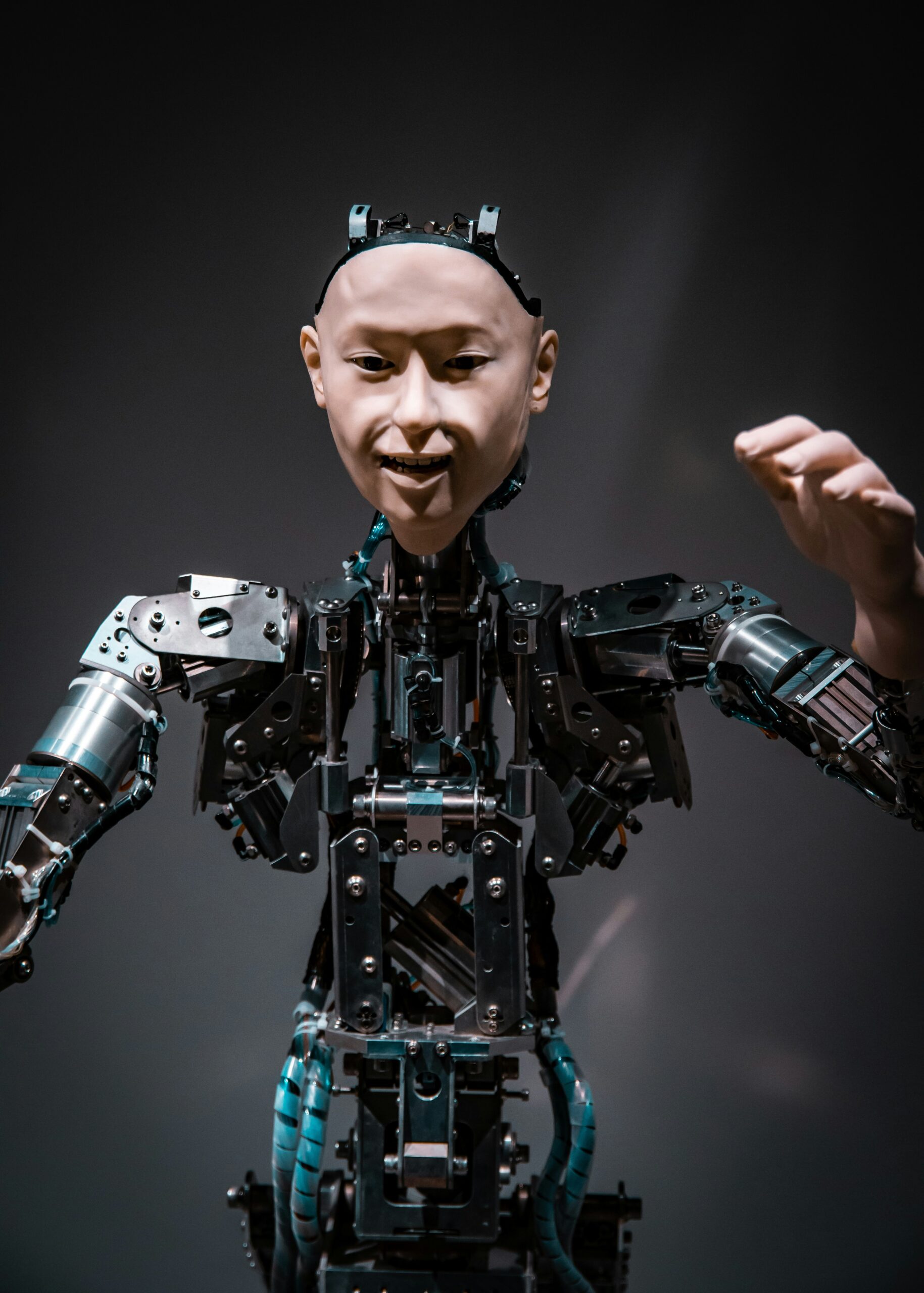How Artificial Intelligence is Revolutionizing Everyday Life in 2024
 Photo by Maximalfocus on Unsplash
Photo by Maximalfocus on Unsplash Introduction to AI in Everyday Life
Artificial Intelligence (AI) has transitioned from theoretical concepts and experimental applications to a cornerstone of modern life, impacting a myriad of daily routines. As we examine the integration of AI in 2024, it is vital to recognize its roots and the significant milestones that have shaped its evolution. Originally rooted in computer science and cognitive psychology, AI emerged as an intellectual pursuit in the mid-20th century, with early models focused on problem-solving and decision-making.
Fast forward several decades, technological advancements in machine learning, natural language processing, and neural networks have propelled AI into mainstream consciousness. By 2024, AI systems are embedded in everything from smartphone assistants to smart home devices, fundamentally transforming the way individuals interact with technology and manage their daily tasks. This ubiquity manifests in applications that range from personalized recommendations on streaming platforms to advanced analytics in healthcare, enhancing decision-making and improving service delivery.
The importance of understanding AI’s implications for society, the economy, and personal behavior cannot be overstated. AI is not only influencing productivity by automating mundane tasks but also reshaping consumer habits and expectations. Consumers now expect tailored experiences powered by AI algorithms, which analyze vast data sets to deliver insight-driven solutions. Moreover, AI’s role in optimizing business operations and driving innovation is enabling organizations to adapt to rapidly changing environments and consumer preferences.
As we reflect on this transformative period, comprehending AI’s integration into daily life offers a clearer perspective on its potential benefits and challenges. The dialogue surrounding AI in 2024 encourages essential discussions about ethics, employment, and privacy, underscoring the need for careful consideration as we navigate this technological landscape. Only through informed engagement can society harness the full potential of AI while addressing its accompanying challenges.
Smart Homes: The AI Revolution
The integration of artificial intelligence into the realm of smart homes has marked a significant evolution in technology, enhancing the convenience and functionality of domestic living. AI-driven devices, such as smart thermostats, lighting systems, and security cameras, have gained prominence in 2024, fundamentally altering how we interact with our home environments. These intelligent systems are designed to learn user preferences and adapt automatically, offering a level of personalized comfort that was previously unattainable.
One of the most notable examples is the smart thermostat, which optimizes heating and cooling schedules based on individual routines and real-time data, leading to significant energy savings. By utilizing AI algorithms, these thermostats not only adjust temperatures but also analyze patterns, providing insights that help users make informed decisions on energy consumption. Consequently, this not only enhances comfort but also promotes energy efficiency, aligning with sustainable living initiatives.
Moreover, AI-enabled lighting systems have transformed the way we illuminate our homes. These systems can adjust brightness and color based on time of day and ambient light conditions, creating an atmosphere tailored to specific activities or moods. The convenience is further amplified when combined with voice-activated assistants, allowing homeowners to control lighting with simple commands, thereby streamlining everyday tasks.
In terms of security, AI-powered surveillance cameras offer enhanced monitoring capabilities. These devices utilize facial recognition and motion detection technology to differentiate between familiar faces and potential intruders, alerting homeowners in real-time to any suspicious activity. This advanced level of security not only safeguards physical assets but also contributes to the overall peace of mind for residents, making their living spaces considerably safer.
As we explore the future, the role of artificial intelligence in smart home technologies continues to expand, paving the way for even greater enhancements in daily life. The convergence of comfort, energy efficiency, and security underscores the importance of AI in creating a modern living experience that caters to individual needs.
AI-Driven Healthcare Innovations
Artificial intelligence (AI) has emerged as a transformative force in the healthcare industry, significantly altering the landscape of medical practice and patient care. In recent years, AI technologies have been utilized in various applications, from diagnostics to operational management, resulting in improved patient outcomes and enhanced efficiency across healthcare facilities. One of the most impactful applications of AI is in diagnostics, where machine learning algorithms analyze vast amounts of medical data to identify patterns and detect diseases at earlier stages. Tools such as image recognition software are being used to interpret radiological images, leading to quicker and more accurate diagnoses.
Moreover, personalized medicine is being reshaped by AI’s ability to tailor treatment plans to individual patients. By analyzing genetic information, lifestyle data, and other factors, AI systems can assist healthcare providers in selecting the most effective therapies for specific conditions. This level of customization not only enhances treatment efficacy but also minimizes the risk of adverse reactions, thereby improving overall patient satisfaction.
Telehealth services have also benefited from AI integration, enabling healthcare providers to offer remote consultations and continuous monitoring for patients. With the use of AI-driven chatbots and virtual assistants, patients can access medical advice and support 24/7, which reduces the strain on healthcare facilities and enhances access to care, particularly for those in underserved areas. Additionally, predictive analytics powered by AI can help healthcare organizations anticipate patient needs, manage resources more efficiently, and reduce operational costs.
In conclusion, the role of AI in healthcare spans numerous innovations that advance the field, including diagnostics, personalized medicine, and telehealth services. These technologies not only improve patient outcomes but also streamline processes and reduce costs, marking a significant evolution in healthcare delivery as we move forward into 2024.
Artificial Intelligence in Transportation
In 2024, artificial intelligence (AI) is making significant strides in revolutionizing transportation systems across the globe. One of the most notable advancements is the widespread adoption of autonomous vehicles. These self-driving cars utilize advanced AI algorithms and extensive data inputs to analyze their environment, make real-time decisions, and navigate safely on the roads. The integration of AI in autonomous vehicles not only enhances individual mobility but also promises to reduce traffic accidents caused by human error, thereby increasing overall road safety.
In addition to self-driving cars, AI-enhanced public transport systems are gaining traction. Cities are implementing smart transit solutions that leverage AI to optimize routes based on real-time passenger data and traffic conditions. This adaptive approach enables public transport agencies to provide more efficient services, reduce wait times, and ultimately encourage the use of public transport over personal vehicles. AI chatbots are also playing a critical role in helping commuters navigate schedules, track arrivals, and resolve inquiries promptly, which further improves the rider experience.
Moreover, AI is transforming logistics and supply chain management by optimizing delivery routes through predictive analytics. Companies are utilizing AI-driven solutions to analyze shipping patterns and anticipated demand, which allows them to minimize fuel consumption and reduce delivery times. This optimization not only boosts operational efficiency but also supports sustainability efforts, as fewer deliveries lead to reduced carbon emissions.
Traffic management is another critical area where AI is demonstrating its potential. Intelligent traffic systems utilize AI to monitor real-time traffic conditions and adjust traffic signals accordingly, reducing congestion and improving flow. This technology enhances safety by decreasing the likelihood of accidents and contributes to a more efficient transportation network overall.
As AI continues to evolve, its applications in transportation are expected to expand, fostering a future where safety, efficiency, and convenience are paramount in everyday travel.
AI Personal Assistants and Everyday Tasks
Artificial Intelligence (AI) has dramatically transformed the way individuals interact with technology, primarily through the advent of AI-powered personal assistants such as Siri, Alexa, and Google Assistant. These virtual assistants leverage advanced algorithms and machine learning techniques to understand user preferences, streamline daily activities, and enhance overall productivity. Their integration into daily life has not only simplified routine tasks but has also revolutionized how humans engage with digital services.
One of the primary functions of these AI personal assistants is to manage schedules effectively. By synchronizing with calendars and reminders, they enable users to organize appointments and important tasks effortlessly. This capability minimizes the chances of oversight in daily responsibilities, allowing for a more structured approach to time management. Furthermore, the automation of repetitive tasks, such as setting reminders or sending messages, has significantly reduced the cognitive load on individuals, freeing them to focus on more complex activities.
In addition to scheduling, AI personal assistants provide immediate access to vast amounts of information. Whether it is checking the weather, finding recipes, or navigating through new locations, users can simply voice their queries, receiving instant responses and relevant suggestions. This capability enhances decision-making processes and empowers users to act promptly, receiving tailored assistance that meets their specific needs.
User experiences with AI personal assistants have often highlighted the convenience and efficiency these technologies offer. As individuals become increasingly reliant on virtual assistance, the trend towards AI integration in daily life is likely to accelerate. The positive feedback loop of enhanced productivity and time savings fosters more widespread adoption, making AI personal assistants an indispensable part of modern living. In conclusion, the influence of AI personal assistants on everyday tasks demonstrates that these technologies are not just a trend, but a pivotal element in shaping the future of personal productivity.
AI’s Influence on Work and Education
Artificial intelligence (AI) has become a transformative force in both workplace and educational environments, fundamentally changing how tasks are completed and how learning occurs. In 2024, the proliferation of AI tools provides significant enhancements to remote work capabilities, enabling increased productivity and collaboration. These tools leverage machine learning algorithms to analyze workflows, manage projects, and facilitate communication, allowing teams, regardless of location, to work seamlessly.
In education, AI is tackling the challenges posed by traditional learning models. The emergence of intelligent tutoring systems allows for more personalized learning experiences by adapting content to meet the unique needs of individual learners. By assessing students’ performance in real-time, these systems can provide tailored recommendations, identify areas for improvement, and offer additional resources to facilitate skill development. This student-centric approach aims to not only boost understanding but also to foster greater engagement in academic material.
Moreover, AI-driven platforms are reshaping employee training and professional development. Organizations are increasingly adopting AI solutions that analyze employee skills and learning preferences, allowing for customized training programs. These programs utilize simulations and gamification, making the learning process not only effective but also enjoyable. The adaptive nature of AI technology ensures that content evolves based on participant feedback and proficiency, keeping learners engaged and motivated.
As workplaces and educational institutions continue to integrate AI, the potential benefits are extensive. Enhanced communication in the workplace, coupled with personalized learning paths in education, signifies a shift towards a more efficient and responsive approach to both professional and academic endeavors. The increasing reliance on AI tools undoubtedly underscores the importance of these technologies in shaping the future landscape of work and learning.
The Social Implications of AI in Daily Life
As artificial intelligence (AI) continues to permeate various aspects of daily life in 2024, it is imperative to examine the social implications that accompany this technological advancement. While AI enhances convenience and efficiency, significant concerns regarding privacy, data security, and ethical considerations warrant attentive discourse. The widespread adoption of AI systems often involves the collection and analysis of vast amounts of personal data, raising questions about individuals’ privacy rights. The potential for misuse of such data highlights the urgent need for stringent regulations that safeguard user information.
Furthermore, data security is a critical concern as AI systems become more integral to daily operations within businesses and households. Personal and sensitive information could be exposed to cyber threats if sufficient protective measures are not in place. As people grow increasingly reliant on AI-driven applications, the threat of data breaches becomes a pressing issue, emphasizing the necessity of robust cybersecurity frameworks within AI systems.
Ethical considerations also play a significant role in the discourse surrounding AI’s societal impact. Issues such as algorithmic bias and the transparency of decision-making processes must be thoroughly examined to ensure AI systems do not perpetuate existing inequalities or infringe on individual rights. Additionally, the potential for job displacement due to automation presents substantial socioeconomic challenges, necessitating dialogue about workforce transitions and reskilling opportunities for affected individuals.
In this evolving landscape, responsible AI governance is essential to address these challenges effectively. Stakeholders, including policymakers, technologists, and the public, must collaborate to establish frameworks that promote ethical AI usage while minimizing adverse effects on society. Fostering public discourse around these critical issues will ensure that the integration of AI enhances rather than undermines social well-being.
The Future of AI in Our Daily Lives
As we look towards the future, the trajectory of artificial intelligence (AI) indicates a profound transformation in everyday life. With advancements in machine learning, natural language processing, and other AI technologies, the integration of AI into both personal and professional realms is expected to deepen significantly. One potential development is the evolution of smart assistants. As these systems become more sophisticated, they will not only manage simple tasks but also engage in complex decision-making processes, thereby enhancing productivity across various sectors.
Another anticipated advancement is in personalized experiences. AI algorithms will become more adept at analyzing user preferences and behaviors, allowing for tailored recommendations in services ranging from fitness to entertainment. This shift will likely improve user satisfaction and engagement, as individuals increasingly find services that resonate with their unique interests and lifestyles. Moreover, sectors such as healthcare and education may see groundbreaking innovations fueled by AI technologies, facilitating personalized treatment plans and customized learning experiences.
The implications of these advancements extend beyond individual applications; they point to broader societal changes. As AI systems are integrated into daily routines, we may see shifts in employment patterns, with particular emphasis on the need for adaptability in the workforce. New job opportunities will emerge, particularly in fields focused on AI development and ethics, necessitating a collective reevaluation of education and skills training. Furthermore, ethical considerations regarding data privacy and decision-making transparency will rise to the forefront of public discourse, prompting regulatory adaptations to keep pace with rapid technological change.
In conclusion, the future of artificial intelligence in our daily lives holds immense potential, characterized by advancements that will reshape interactions, increase efficiency, and drive innovation. As society adapts to these transforming technologies, a proactive approach to address associated challenges will be essential for fostering a balanced coexistence between humanity and AI.
Conclusion: Embracing the AI Revolution
As we reflect on the transformative impact of artificial intelligence in 2024, it becomes increasingly evident that this technology is reshaping various aspects of everyday life. From enhancing productivity in the workplace to enabling personalized experiences in our daily routines, AI is proving to be a pivotal force driving innovation. The integration of AI in sectors such as healthcare, education, and transportation has streamlined processes, improved efficiency, and opened up new avenues for growth. This paradigm shift underscores the necessity for individuals and organizations alike to adapt and leverage these advancements effectively.
However, with the benefits of artificial intelligence come significant challenges and ethical considerations that must not be overlooked. As reliance on AI systems grows, it is crucial to address concerns surrounding data privacy, algorithmic biases, and the potential for job displacement. Stakeholders must engage in collective discussions aimed at establishing responsible frameworks that govern the ethical deployment of AI. By fostering transparency and accountability, we can ensure that the advancements AI brings are applied in ways that benefit everyone, while mitigating potential risks.
The future undoubtedly holds exciting prospects as artificial intelligence continues to evolve. Embracing the AI revolution means not only celebrating the innovation it brings but also recognizing the responsibilities that accompany it. By striking a balance between harnessing technology’s potential and addressing the ethical implications, we can navigate this new landscape in a manner that enhances our daily lives. It is our collective responsibility to ensure that AI serves as a tool for progress, fostering a society where technology and humanity work in tandem for a better tomorrow.





Tidak ada komentar